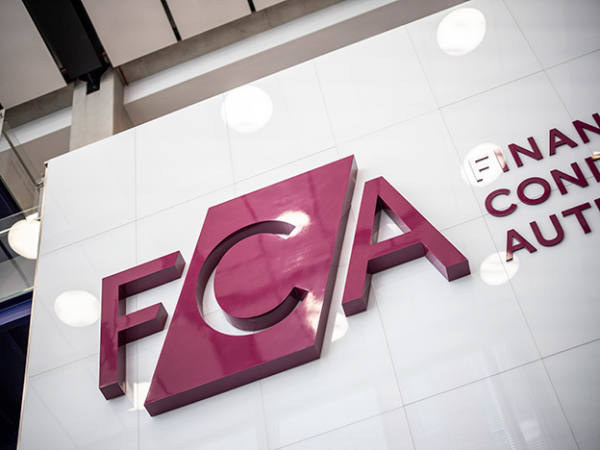Hard to believe, but UK outsourcers were exciting growth stocks in the early 2000s. Under New Labour, a host of state services fell into private sector hands, and the likes of Serco (SRP), Capita (CPI) and G4S were riding high. Then came the 2010s, and things came tumbling down. Profit warnings, accounting scandals and high-profile bankruptcies shattered share prices and bred mistrust among investors. Several years down the line, however, some interesting opportunities have returned.
- Earnings momentum
- Resilient profit margins
- Improved balance sheet
- Volatile workload
- Lossmaking contracts
- Inflationary pressures
Mitie (MTO) handles everything from cleaning and catering to recycling and background screening. Like many of its peers, it has a chequered past. Two decades of strong trading quickly unravelled in 2017, when a series of profit warnings culminated in a £183mn loss and a big share price drop.
Auditing failures were largely to blame – namely a “material uncorrected misstatement” in Mitie’s accounts, which meant that its lossmaking healthcare arm looked significantly more valuable than it actually was. The division was sold for a grand total of £2 in March 2017. The arrival of Covid-19 added to the pressure, and the group’s share price didn’t stop falling until Christmas 2020.
Turnaround time
The disruption wreaked by the pandemic masked a period of internal recovery at Mitie, however, when a fresh management team strove to improve the group’s bad customer service and poor cash collection.
Their efforts are now starting to bear fruit. For starters, profit warnings have been replaced with profit upgrades. Mitie boosted its full-year guidance in November, and increased it again last month. While adjusted operating profit is only expected to reach £155mn in the year to 31 March 2023 – compared with £167mn in 2022 – this is still almost double pre-pandemic levels.
Mitie is clearly growing its core business, therefore, and has managed to replace a sizable chunk of the work it took on during lockdown; analysts at broker Numis estimate that Mitie lost £448mn of non-recurring Covid revenues in the 2023 financial year. Contract repricing, new business wins and higher project revenue all seem to be playing a part.
Mitie’s success is echoed elsewhere in the outsourcing sector. Serco recently said that labour shortages “put a premium on agility, mobilisation at scale, high productivity and effective management” - all of which it claims to offer. Meanwhile, contract caterer Compass (CPG) argued that “many of the complexities that drive outsourcing, such as increased regulation, changing client and consumer expectations and inflation are here to stay.”
Certain areas of work look particularly promising for Mitie. The UK’s 5G rollout, for example, will require plenty of manpower. And its acquisition of Interserve in 2020 means the group has significantly more exposure to public sector work than it did before, which should improve its resilience during tough economic times.
Fidelity fund manager Alex Wright described the deal as “quite possibly the best acquisition I’ve seen any company do in my entire fund management career”, lending Mitie “more scale and more credibility”.
More profit, less debt
It’s not all about client demand, however. Profitability is often where outsourcers come unstuck, particularly when contracts are long and costs are high. It’s important to note here that Mitie’s operating profit margins are skinny – even by outsourcing standards – sitting at well below 5 per cent, and inflation remains a worry for the group.
That said, Mitie’s margins have proved remarkably resilient thus far. Last June, management predicted an inflationary impact of between £10mn and £20mn in 2023. However, the group has surpassed internal expectations, and the full-year cost impact has been revised to “under £10mn”. Margin enhancement schemes have also “started to deliver” and Mitie is targeting operating margins of 4.5-5.5 per cent in the medium term. Analysts think this could prove an important catalyst for its share price.
Just as importantly, Mitie has strengthened its balance sheet. Net debt has fallen from £193mn in 2016 to £85mn in September 2022, helped by a hefty bank loan repayment in 2021. At the same time, it has been building its cash pile and – as can be seen in the chart below – the overall effect is one of sensible cash preservation.
However, management announced a new capital allocation policy last year, and intends to “progress steadily towards a dividend payout of 30-40 per cent”. This will be welcome news to the investors who have complained that Mitie has been too conservative with its cash. Management got things off to a good start last month, with the launch of a £50mn share buyback.
Caveats
Yet it would be disingenuous to suggest that Mitie’s cash flow has been consistently good since new management took over. Working capital movements have been sporadic, and free cash flow remains lumpy: in the first half of the 2023 financial year the group reported an outflow of £11mn, compared with an inflow of £86mn the year before.
This isn’t necessarily surprising. The group is still in a period of transition, and management has been replacing Covid-related contracts with revenue “on less attractive credit terms”. However, lumpy cash generation is certainly worth keeping an eye on, given the sector’s history of revenue recognition issues. There is always a risk that Mitie has been too optimistic when booking its revenue, given that so much is tied up in accrued income (ie, work that’s been done but which clients haven’t been billed for).
There is also a lingering worry that Mitie has been ensnared in lossmaking contracts that suck in cash. Some of these are already accounted for, of course. The group inherited a number of such contracts from Interserve, for example, which are reflected in £12mn of provisions for onerous contracts on the balance sheet.
However, there is one lossmaking contract – with 18 years left to run – that does not have an onerous contract provision attached to it. Management says a “detailed turnaround plan” is being implemented and expects that the contract “will record a cumulative profit for the remaining term of the contract”. Given the secretive nature of outsourcer contracts, though, it is difficult for investors to assess the situation for themselves.
Adding to the uncertainty is the fact that outsourcers are constantly rebidding for work and, thus, always at risk of losing business. This can have nasty consequences for profits and share ratings, as Wincanton (WIN) found out in March. Shares in the logistics group crashed by a third when it revealed that HM Revenue & Customs had ditched it in favour of a French rival.
All of these concerns are valid and – to a large extent – come with the outsourcing territory. However, there have been some reassuring developments in recent years. First, IFRS 15 was introduced in 2018, tightening the rules around revenue recognition. Second, auditors are likely to be on high alert following the scandals of the past decade.
And third? “The competitive situation for Mitie is so much better than it was in the past,” says Fidelity’s Alex Wright. “When this was a go-go growth sector, everyone was competing very hard; you had foreign companies trying to enter; you had some very aggressive UK players, such as Carillion, trying to get contracts. Post-Carillion going bankrupt and big problems with G4S, you’ve seen a dramatic reduction in competition. The chance of losing on a rebid used to be an awful lot higher than it is today. So the quality of earnings has improved.”
Outsourcers' shares are unlikely to ever trade on the lofty multiples they enjoyed 20 years ago – particularly now the sector is more mature and the risks more established. However, Mitie is growing its market share, increasing its revenues, expanding its margins and rewarding its shareholders. Renewed interest from private equity firms could also give it a welcome boost. Energy services group Sureserve (SUR) received a £214mn takeover bid from Cap10 Partners last month. Others could be next. Thus, Mitie's forward price/earnings ratio of 10 looks modest and its share price appreciation is picking up pace. Buy.
| Company Details | Name | Mkt Cap | Price | 52-Wk Hi/Lo |
| MITIE (MTO) | £1.26bn | 93p | 96.4p / 51.3p | |
| Size/Debt | NAV per share* | Net Cash / Debt(-) | Net Debt / Ebitda | Op Cash/ Ebitda |
| 32p | -£85.2m | - | 116% |
| Valuation | Fwd PE (+12mths) | Fwd DY (+12mths) | FCF yld (+12mths) | P/Sales |
| 10 | 3.0% | 8.0% | 0.2 | |
| Quality/ Growth | EBIT Margin | ROCE | 5yr Sales CAGR | 5yr EPS CAGR |
| 2.8% | 19.3% | 12.9% | - | |
| Forecasts/ Momentum | Fwd EPS grth NTM | Fwd EPS grth STM | 3-mth Mom | 3-mth Fwd EPS change% |
| 12% | 2% | 21.0% | 13.5% |
| Year End 31 Mar | Sales (£bn) | Profit before tax (£mn) | EPS (p) | DPS (p) |
| 2020 | 2.17 | 69 | 8.40 | 0.90 |
| 2021 | 2.56 | 43 | 3.50 | 0.00 |
| 2022 | 3.90 | 147 | 8.50 | 1.65 |
| f'cst 2023 | 4.01 | 141 | 7.94 | 2.35 |
| f'cst 2024 | 4.14 | 158 | 9.03 | 2.67 |
| chg (%) | +3 | +12 | +14 | +14 |
| source: FactSet, adjusted PTP and EPS figures | ||||
| NTM = Next Twelve Months | ||||
| STM = Second Twelve Months (i.e. one year from now) | ||||
| * includes intangibles of £560mn or 43p per share | ||||








